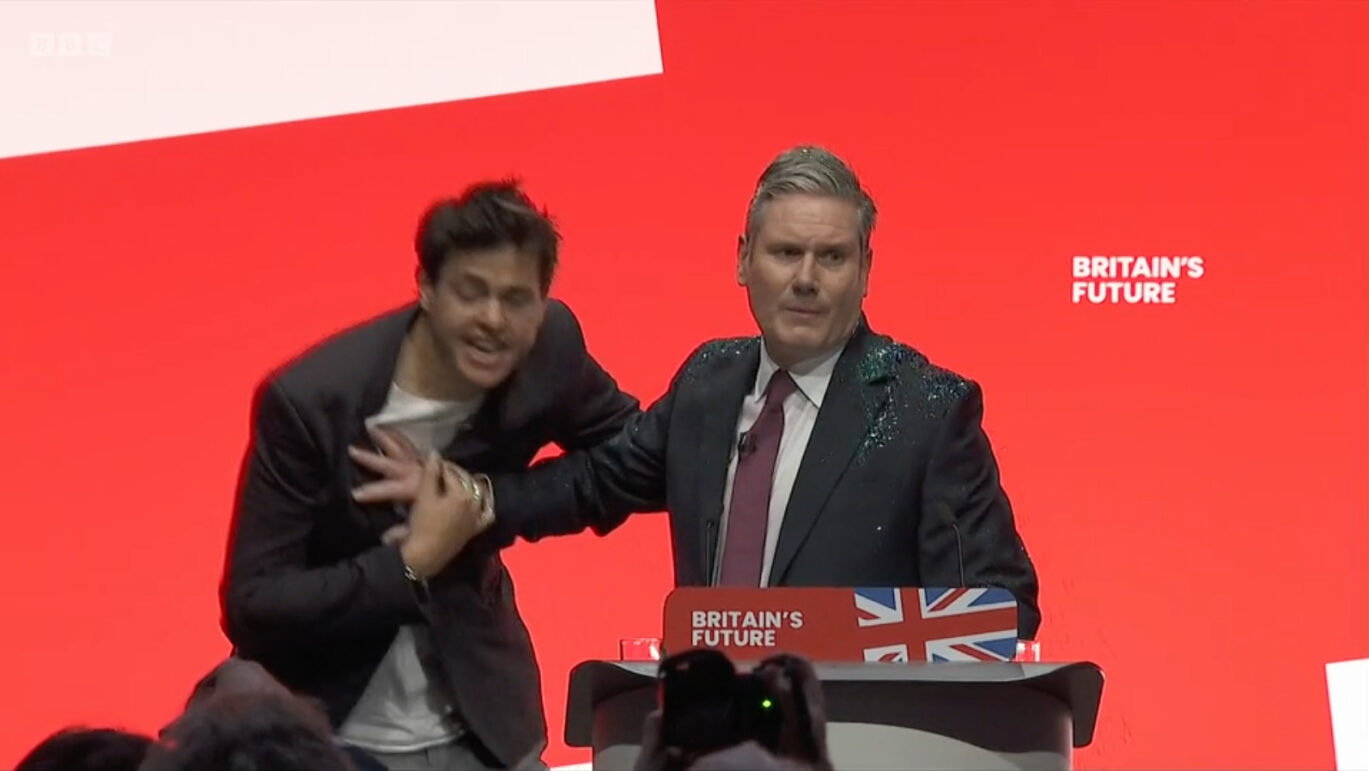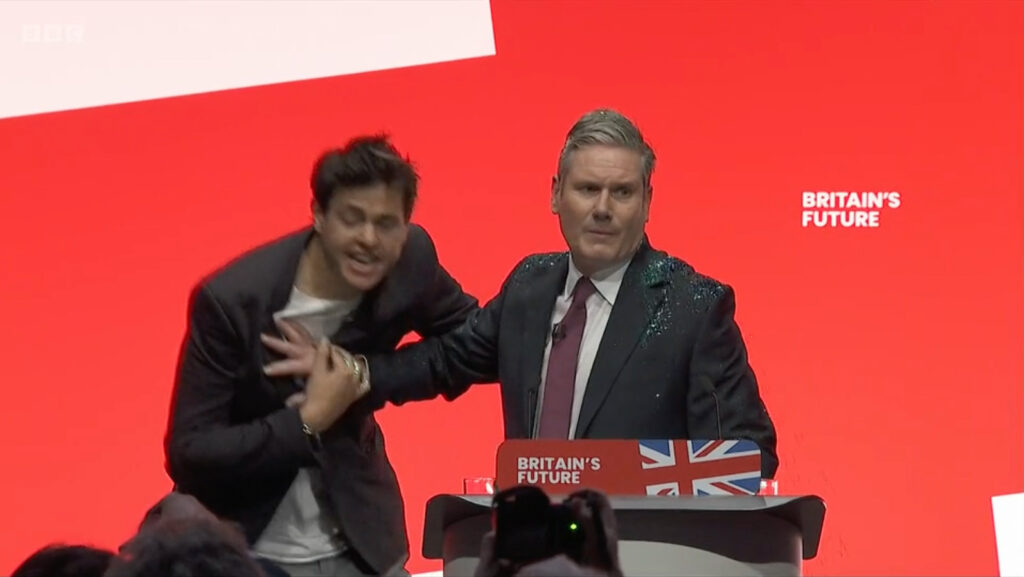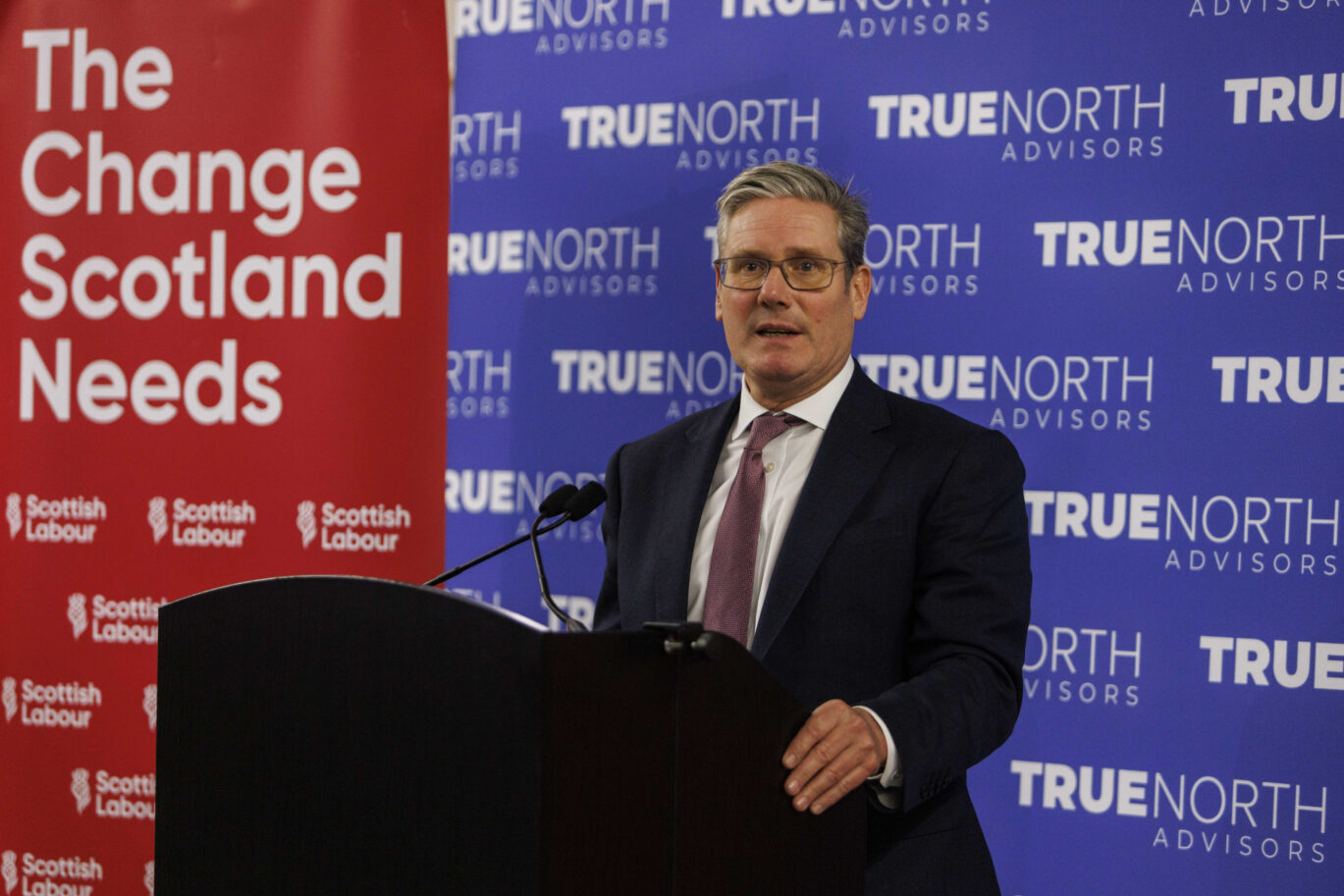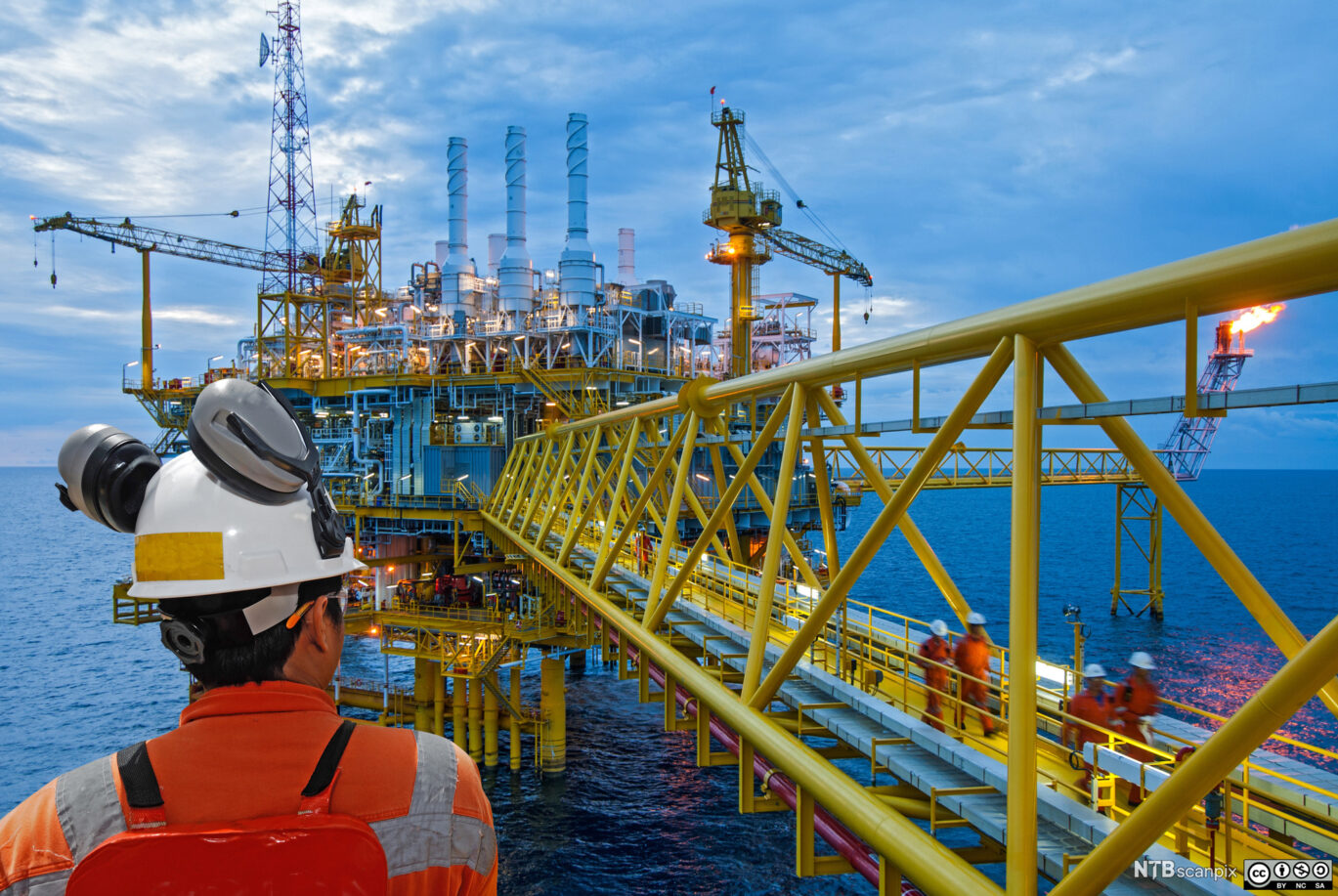If the protester who covered Sir Keir Starmer in glitter at the start of his conference speech intended to throw the UK Labour leader off his stride, he failed. This was Starmer’s most assured and ambitious speech since he became party leader in 2019, with one party veteran telling me it was the best speech they had heard from a Labour leader since Tony Blair left office in 2007.
It was, perhaps surprisingly a year from a General Election, a speech light on policy. Keen not to be outflanked by the Conservatives on the economy – and in keeping with his cautious approach more generally – Starmer avoided any significant spending commitments or grandiose policy pledges.
The only new number of note was a warmly-welcomed commitment to build 1.5million homes, which Labour hopes to deliver by freeing up disused land for development and curtailing the power of nimbies to block construction. Starmer also highlighted Labour’s plan to headquarter its publicly-owned energy company, which he said would “harness clean British power” and help deliver half a million green jobs, in Scotland.












